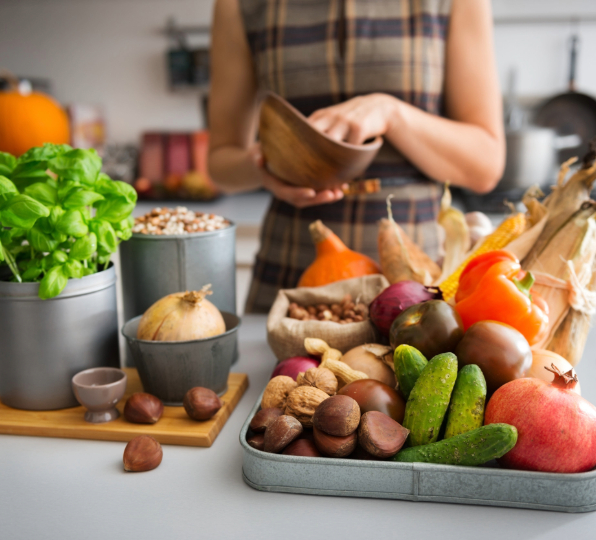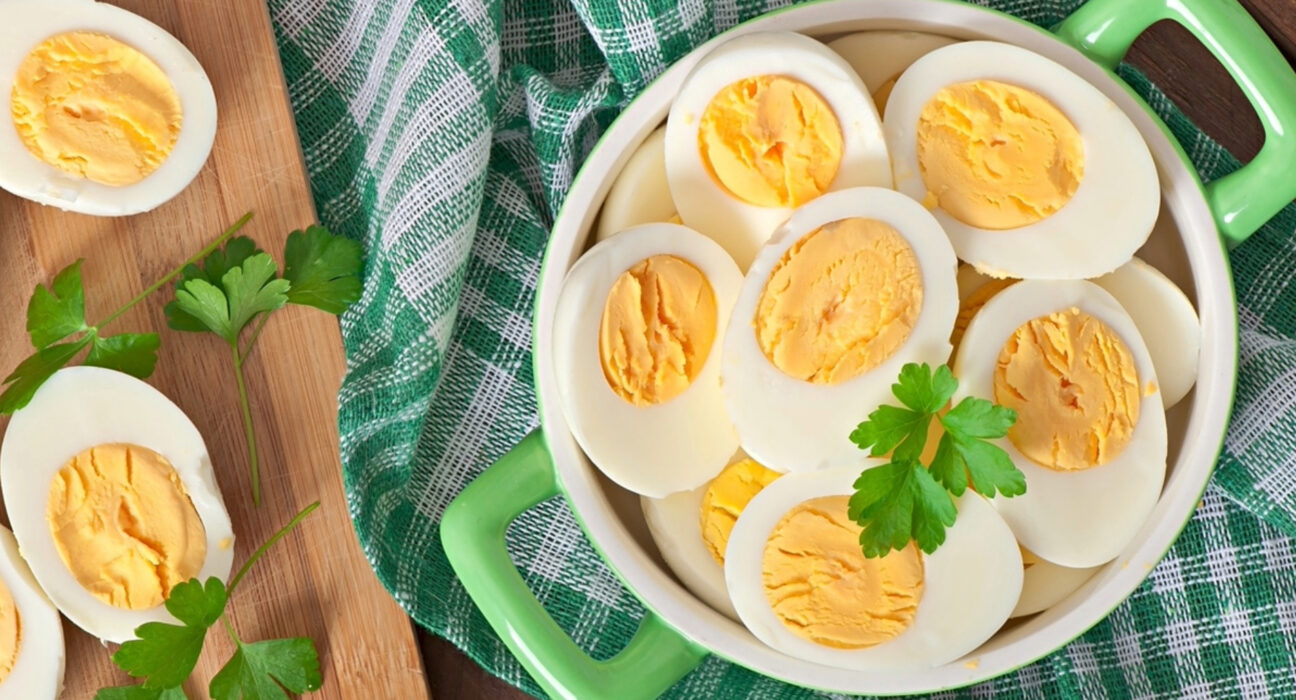Introduction:
Coffee might give you a short-term energy boost, but if you depend on caffeine all the time for alertness, you’ll eventually develop dependence and energy crashes. Thankfully, there are lots of wholesome foods that can give you long-lasting energy without making you feel jittery or exhausted. We’ll look at a range of healthful foods in this blog that are high in vitamins, minerals, and other nutrients that are known to naturally raise energy levels and keep you focused, awake, and energized all day.
1. Bananas
Bananas are one of nature’s perfect snacks, offering a combination of essential nutrients that contribute to overall health and well-being. Rich in carbohydrates, natural sugars, and potassium, bananas provide a quick and convenient source of energy that can help fuel your body throughout the day.
One of the primary benefits of bananas is their carbohydrate content. Carbohydrates are the body’s preferred source of energy, providing fuel for both physical and mental activities. Bananas are particularly rich in easily digestible carbohydrates, including natural sugars like glucose, fructose, and sucrose. These sugars are quickly absorbed into the bloodstream, providing a rapid burst of energy that can help combat fatigue and improve alertness.
In addition to carbohydrates, bananas are an excellent source of potassium, a vital mineral and electrolyte that plays numerous roles in the body. Potassium helps regulate fluid balance, muscle contractions, and nerve signals, making it essential for proper hydration, muscle function, and nerve transmission. Consuming potassium-rich foods like bananas can help maintain healthy blood pressure levels, reduce the risk of stroke, and support cardiovascular health.
Bananas are also a good source of other essential vitamins and minerals, including vitamin C, vitamin B6, manganese, and fiber. Vitamin C is an antioxidant that helps protect cells from damage, supports immune function, and aids in collagen production for healthy skin and connective tissues. Vitamin B6 is involved in over 100 enzymatic reactions in the body, including metabolism and neurotransmitter synthesis. Manganese plays a role in bone health, wound healing, and antioxidant defense, while fiber promotes digestive health and helps maintain bowel regularity.
One of the best things about bananas is their versatility. They can be enjoyed in various ways, whether eaten on their own as a convenient snack or incorporated into other dishes for added flavor and nutrition. Sliced bananas make a delicious and nutritious addition to yogurt, oatmeal, or cereal, providing natural sweetness and creaminess. You can also blend bananas into smoothies for a refreshing and energizing drink that’s perfect for breakfast or a post-workout snack.
2. Oats
Oats are a versatile and nutritious grain that has been a staple food in many cultures for centuries. They are a complex carbohydrate, meaning they provide sustained energy and help regulate blood sugar levels due to their high fiber content. Whether enjoyed as oatmeal, granola, or baked goods, oats offer a host of health benefits that make them an excellent addition to any diet.
One of the key benefits of oats is their high fiber content. Oats contain both soluble and insoluble fiber, with the former dissolving in water to form a gel-like substance that slows down digestion and promotes feelings of fullness. This helps stabilize blood sugar levels and prevent spikes and crashes in energy, making oats an ideal choice for breakfast or snacks. The insoluble fiber in oats adds bulk to the stool, promoting regular bowel movements and supporting digestive health.
In addition to fiber, oats are rich in essential nutrients such as manganese, phosphorus, magnesium, and zinc. These minerals play important roles in bone health, energy metabolism, and immune function, contributing to overall well-being and vitality. Oats also contain B vitamins, including thiamine, riboflavin, and niacin, which are involved in energy production and nervous system function.
One of the most popular ways to enjoy oats is in the form of oatmeal. Whether you prefer steel-cut, rolled, or instant oats, oatmeal is a comforting and nutritious breakfast option that can be customized to suit your taste preferences. Simply cook oats with water or milk and add toppings such as fresh or dried fruits, nuts, seeds, and a drizzle of honey or maple syrup for sweetness.
For a convenient on-the-go snack, consider making homemade granola using oats as the base ingredient. Mix oats with nuts, seeds, dried fruits, and a touch of honey or coconut oil, then bake until golden and crispy. Granola can be enjoyed by itself as a crunchy snack or sprinkled over yogurt, smoothie bowls, or oatmeal for added texture and flavor.
3.Nuts and Seeds
Nuts and seeds are nutritional powerhouses that offer a wide array of health benefits, making them an excellent addition to any diet. Packed with healthy fats, protein, fiber, vitamins, and minerals, these tiny snacks provide a convenient and satisfying way to fuel your body and maintain energy levels throughout the day.
One of the key benefits of nuts and seeds is their rich content of healthy fats, including monounsaturated and polyunsaturated fats. These fats are essential for supporting heart health, reducing inflammation, and promoting brain function. Nuts like almonds, walnuts, and pistachios, as well as seeds such as pumpkin seeds and sunflower seeds, are all excellent sources of these beneficial fats.
In addition to healthy fats, nuts and seeds are also rich in protein, making them an ideal choice for vegetarians and vegans looking to increase their protein intake. Protein is essential for muscle repair and growth, as well as for maintaining feelings of fullness and satiety. Snacking on a handful of nuts or seeds can help curb hunger and prevent overeating between meals.
Fiber is another important nutrient found in nuts and seeds. Both soluble and insoluble fiber contribute to digestive health by promoting regular bowel movements, supporting gut health, and reducing the risk of chronic diseases such as heart disease, diabetes, and certain types of cancer. Incorporating nuts and seeds into your diet can help you meet your daily fiber needs and keep your digestive system functioning optimally.
Nuts and seeds are also rich in vitamins and minerals that are important for overall health and well-being. For example, almonds are a good source of vitamin E, which acts as a powerful antioxidant and helps protect cells from damage caused by free radicals. Pumpkin seeds are high in magnesium, a mineral that plays a role in more than 300 biochemical reactions in the body, including muscle and nerve function, blood sugar regulation, and bone health.
4. Leafy Greens
Leafy greens are nutritional powerhouses that offer a plethora of health benefits, making them a valuable addition to any diet. Spinach, kale, Swiss chard, and other leafy greens are not only low in calories but also packed with essential vitamins, minerals, and antioxidants that support overall health and well-being.
One of the key benefits of leafy greens is their high iron content. Iron is a crucial mineral that plays a vital role in the production of hemoglobin, a protein in red blood cells that carries oxygen from the lungs to the rest of the body. Adequate iron intake is essential for maintaining energy levels, preventing fatigue, and promoting overall vitality. Leafy greens like spinach and Swiss chard are particularly rich sources of iron, making them an excellent choice for individuals looking to boost their iron intake naturally.
In addition to iron, leafy greens are also packed with antioxidants, including vitamins A, C, and E, as well as various phytonutrients like flavonoids and carotenoids. These antioxidants help combat oxidative stress and inflammation in the body, protect cells from damage caused by free radicals, and reduce the risk of chronic diseases such as heart disease, cancer, and diabetes. Incorporating leafy greens into your diet can help support a strong immune system, promote healthy aging, and enhance overall longevity.
Leafy greens are also rich in fiber, both soluble and insoluble, which is important for digestive health and regular bowel movements. Fiber helps promote satiety, regulate blood sugar levels, and prevent constipation, making it an essential nutrient for maintaining a healthy weight and reducing the risk of obesity and related conditions. Including leafy greens in your meals can help you meet your daily fiber needs and keep your digestive system functioning optimally.
There are countless ways to incorporate leafy greens into your diet. You can enjoy them raw in salads, toss them into smoothies for an extra nutrient boost, or sauté them with garlic and olive oil as a delicious side dish. Leafy greens can also be added to soups, stews, omelets, sandwiches, and wraps for an easy and nutritious addition to any meal.
5. Greek Yogurt
Greek yogurt has gained popularity in recent years due to its impressive nutritional profile and versatile culinary uses. This creamy dairy product is not only delicious but also packed with essential nutrients that support overall health and well-being. From protein and probiotics to vitamins and minerals, Greek yogurt offers a wide range of benefits for muscle repair, digestion, and energy levels.
One of the key benefits of Greek yogurt is its high protein content. Protein is essential for muscle repair and growth, making it an important nutrient for anyone looking to maintain or build lean muscle mass. Greek yogurt contains roughly twice the amount of protein as regular yogurt, making it an excellent choice for athletes, fitness enthusiasts, and anyone with increased protein needs. Consuming protein-rich foods like Greek yogurt can help support muscle recovery after exercise, prevent muscle loss during weight loss or calorie restriction, and promote overall strength and vitality.
In addition to protein, Greek yogurt is also rich in probiotics, which are beneficial bacteria that support digestive health and immune function. Probiotics help maintain a healthy balance of gut bacteria, improve digestion, and enhance nutrient absorption. Regular consumption of probiotic-rich foods like Greek yogurt may help alleviate digestive issues such as bloating, gas, and constipation, as well as boost immune function and reduce the risk of infections. Including Greek yogurt in your diet can help support a healthy gut microbiome and promote overall well-being from the inside out.
Greek yogurt is also a good source of essential vitamins and minerals, including calcium, potassium, and vitamin D. Calcium is important for bone health, while potassium helps regulate blood pressure and electrolyte balance. Vitamin D plays a role in calcium absorption and immune function, making it a crucial nutrient for overall health. Enjoying Greek yogurt as part of a balanced diet can help ensure that you’re getting an array of essential nutrients that support optimal health and vitality.
There are countless ways to incorporate Greek yogurt into your diet. You can enjoy it on its own as a satisfying snack or dessert, or use it as a creamy base for smoothies, dips, dressings, and sauces. Greek yogurt can also be mixed with fruits, nuts, seeds, granola, or honey for added flavor and nutrition. Whether enjoyed plain or mixed with other ingredients, Greek yogurt is a delicious and nutritious addition to any meal or snack.
6. Quinoa
Quinoa, often hailed as a superfood, is a versatile and nutritious grain that offers a wide range of health benefits. Originating from the Andean region of South America, quinoa has gained popularity worldwide for its unique nutritional profile, delicious flavor, and culinary versatility. As a complete protein and complex carbohydrate, quinoa provides sustained energy and promotes feelings of fullness, making it an excellent addition to any balanced diet.
One of the key benefits of quinoa is its impressive protein content. Unlike most grains, quinoa is considered a complete protein, meaning it contains all nine essential amino acids that the body cannot produce on its own. This makes quinoa an excellent source of plant-based protein for vegetarians, vegans, and anyone looking to increase their protein intake. Consuming protein-rich foods like quinoa can help support muscle repair and growth, promote satiety, and regulate blood sugar levels, making it an ideal choice for athletes, fitness enthusiasts, and individuals with active lifestyles.
In addition to its protein content, quinoa is also rich in complex carbohydrates, which provide sustained energy and help regulate blood sugar levels. Unlike simple carbohydrates found in refined grains and sugary foods, complex carbohydrates in quinoa are digested more slowly, providing a steady release of energy over time. This can help prevent spikes and crashes in blood sugar levels, reduce cravings, and support overall energy levels throughout the day. Including quinoa in your meals can help you feel satisfied and energized while providing your body with essential nutrients.
Quinoa is also a good source of fiber, vitamins, and minerals, including magnesium, iron, and zinc. Fiber is important for digestive health, promoting regular bowel movements, and reducing the risk of constipation and other digestive issues. Additionally, quinoa contains significant amounts of magnesium, which plays a role in muscle and nerve function, energy metabolism, and bone health. Iron is essential for transporting oxygen in the blood and preventing anemia, while zinc is important for immune function, wound healing, and cell growth and repair.
There are countless ways to incorporate quinoa into your diet. You can use it as a base for salads, stir-fries, or grain bowls, or incorporate it into soups, stews, casseroles, and baked goods. Quinoa can also be used to make pilafs, risottos, stuffed vegetables, and breakfast porridges. Its mild, nutty flavor and fluffy texture make it a versatile ingredient that pairs well with a variety of other foods and flavors. Whether enjoyed hot or cold, as a main dish or side dish, quinoa is a nutritious and delicious addition to any meal.


Conclusion:
When it comes to boosting energy levels, skip the coffee and opt for nutritious foods that provide sustained energy without the caffeine crash. Incorporate bananas, oats, nuts, seeds, leafy greens, Greek yogurt, quinoa, and other nutrient-rich foods into your diet to fuel your body and mind naturally. By making mindful food choices and prioritizing nourishing options, you can enjoy sustained energy, improved focus, and enhanced overall well-being throughout the day.












